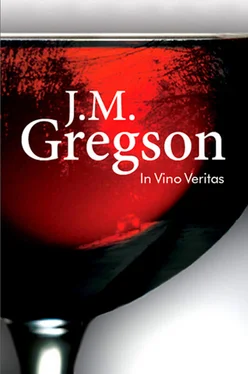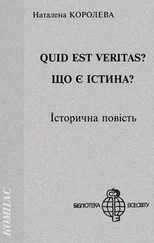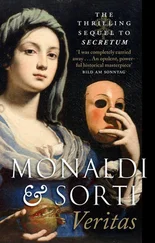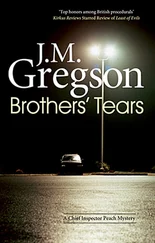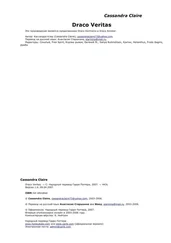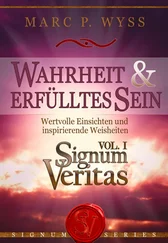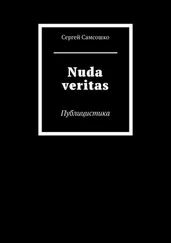J. Gregson - In Vino Veritas
Здесь есть возможность читать онлайн «J. Gregson - In Vino Veritas» весь текст электронной книги совершенно бесплатно (целиком полную версию без сокращений). В некоторых случаях можно слушать аудио, скачать через торрент в формате fb2 и присутствует краткое содержание. Год выпуска: 2012, Издательство: Severn House Publishers Ltd, Жанр: Полицейский детектив, на английском языке. Описание произведения, (предисловие) а так же отзывы посетителей доступны на портале библиотеки ЛибКат.
- Название:In Vino Veritas
- Автор:
- Издательство:Severn House Publishers Ltd
- Жанр:
- Год:2012
- ISBN:нет данных
- Рейтинг книги:4 / 5. Голосов: 1
-
Избранное:Добавить в избранное
- Отзывы:
-
Ваша оценка:
- 80
- 1
- 2
- 3
- 4
- 5
In Vino Veritas: краткое содержание, описание и аннотация
Предлагаем к чтению аннотацию, описание, краткое содержание или предисловие (зависит от того, что написал сам автор книги «In Vino Veritas»). Если вы не нашли необходимую информацию о книге — напишите в комментариях, мы постараемся отыскать её.
In Vino Veritas — читать онлайн бесплатно полную книгу (весь текст) целиком
Ниже представлен текст книги, разбитый по страницам. Система сохранения места последней прочитанной страницы, позволяет с удобством читать онлайн бесплатно книгу «In Vino Veritas», без необходимости каждый раз заново искать на чём Вы остановились. Поставьте закладку, и сможете в любой момент перейти на страницу, на которой закончили чтение.
Интервал:
Закладка:
J. M. Gregson
In Vino Veritas
ONE
It was at two minutes to midnight on the third of March that Alistair Morton first entertained the idea of murder.
He could be very precise about that, for he looked at the clock on the mantelpiece at exactly the moment when the idea came into his head. His wife had already been in bed for an hour, and Alistair had switched the television off at twenty to twelve. Since then, he had been sitting very still in his chair. Ruminating about where he stood in life and what he could do about it. It was a habit he had acquired over the last year, when his existence had moved from being merely frustrated to being embittered.
He sat in the deep, comfortable chair, which no one else ever used, and wondered whether living had any meaning. His life in particular seemed to be completely without purpose. Murder might be the only thing which could bring some meaning back into his existence.
Alistair was a practical man. He was an accountant for a start, and accountants were taught early in life what was possible and what was not. They also learned that imagination was the most dangerous of human properties. It had to be imprisoned within very strong walls and not allowed to escape. Better still, imagination had better be discarded altogether. Left to poets and other misfits like them. Dumped in some neglected garret until disuse starved it out of existence.
Alistair thought he generally controlled his imagination well, but he was aware that it was an unruly and scarcely tameable beast. Of late, it had tended to come out of the shadows late at night. The dangerous time was when his wife was in bed, the television set was switched off, and he was left alone with his thoughts in the quiet sitting room.
Alistair Morton told himself firmly that the concept of murder should probably be no more than a delightful fantasy, an idea to play with and then discard. But instead of abandoning it as his training told him to do, he now proceeded to give it substance, to put bones and flesh upon the skeleton. It should have given him no more than a minor thrill and then been rejected, like a passing spectre upon a fairground ghost train.
Yet the more he thought about it, the more the idea began to seem feasible. That magic accountants’ word! Feasible. Instead of seeming upon examination bizarre and impossible, this particular murder began to seem as practical a proposition as tax avoidance. Just this particular murder, Alistair told himself repeatedly. He wasn’t saying that murder in general was feasible, or even desirable. But this particular murder was both of those things.
Desirable because the man concerned would be no loss to society. Indeed, his demise would be a positive benefit to many people, not just to Alistair himself. His removal would be a public-spirited act. An act which would make a wide circle of humanity much happier in the years to come. ‘Every man’s death diminishes me’, some fusty old poet or philosopher had said; that was the kind of irrelevant nonsense they tried to fill your head with at school. Well, sod that for a game of soldiers! Alistair had never subscribed to that idea. Even when the idea was first put to him, he had immediately thought of several masters in the school whose death would have seemed positively desirable, whose passing would have diminished him not in the least.
With the passing years, his sentiments had not changed. Hitler and Stalin, and in his own lifetime Chairman Mao in China: here were three for a start whose deaths would have diminished no one at all and benefited thousands. This man wasn’t a villain on that scale, Alistair wasn’t claiming that. But he couldn’t see that anyone would suffer by his elimi shy; shy; shy; shy; shy; shy; shy; shy; shy;nation, whereas there were a whole range of people who would benefit. Once you looked at it in those terms, the case for his removal seemed overwhelming. Alistair wriggled his toes in his slippers and luxuriated for a moment in the thought.
In the next few minutes, he confirmed to himself — and this was the thing which appealed to the accountant in him — that the proposition was feasible. Many murders wouldn’t be, but this one was. There was no hurry, for a start. With a little ingenuity and a lot of careful planning, this death might be arranged so that no one was ever charged with it. And planning was his forte, wasn’t it? Planning was the whole raison d’etre of accountants.
Murder wasn’t just a matter for the imagination, after all.
That was probably why it was still such a rare crime, once you discounted the impetuous knife crimes of city youth and the domestic killings which were solved within hours. Those weren’t proper murders, not murders in the sense which most people had of the crime, where someone was struck down by person or persons unknown.
There were probably a lot more murders than people realized from the statistics, because the most successful ones were never recognized as such. That was both a satisfying and a thought-provoking notion. It also marked a challenge which even an accountant should be excited to undertake.
And even if the police recognized this death as murder, there would be many suspects, wouldn’t there, because the victim was such an unpopular man? Alistair decided that he would be well down that list of suspects; indeed, he might not figure on the list at all, if he planned the crime as carefully as he proposed to do. It was a crime, he supposed. Technically, at any rate. But he’d already proved that some crimes were perfectly justified, hadn’t he?
When he looked at the clock, he was surprised to find that it was one a.m. Alistair Morton smiled. He wondered when he had last spent an hour in such fruitful and productive thought.
TWO
The sun was still quite low, but there was scarcely a cloud in the sky. The long lines of carefully trained grapevines stretched away over the hill, straight and regular as columns of Roman soldiers. Martin Beaumont called out a cheery good morning and waved to the visitors as he passed them in his electric buggy. They wouldn’t know who he was, of course, wouldn’t know that he owned the land as far as their eyes could see. One of the workers would tell them, if they asked. That didn’t really matter, but the thought pleased him.
‘As far as the eye could see’ might be pushing it a bit. Eighty-five acres, to be precise; his land didn’t include the long line of the Malvern Hills to the north, or the more distant Welsh mountains to the west: that would be ridiculous. But the strolling visitors he had passed were in the valley. All they could see from there were the long lines of beautifully trained vines running away to the top of the slopes above and behind them, and every inch of that intensively cultivated land was assuredly his. Well, his company’s, if you wanted to be pedantic, but everyone understood that that was just a legal technicality.
Beaumont stopped at the highest point of his land. He loved this spot on a spring day, loved to survey the scale of his achievement on this rolling land which was bounded by the historic rivers Severn and Wye, neither of them visible from here but each of them imbued with the turbulent history of England. That history was an appropriate setting for his revival of winemaking in this western corner of Gloucestershire. The Romans had made wine in quantity in England, as Martin was fond of reminding anyone who would listen. He was reviving an ancient craft. If global warming was giving him increasing assistance, that was but a happy accident. If your mind favoured the notion of a supreme being, the changing climate might even be seen as a sign of approval from a benevolent Providence.
It was the middle of March and the sun was rising a little higher each day. It had real warmth in it now. The swelling buds on the vines were bursting into fresh green leaves on the more sheltered south-facing slopes, heralding the lush green and black grapes which would follow, as summer warmth and Gloucestershire rain swelled them towards maturity. Martin loved this time of the year, when summer and its promise were all before them and the earth smelt of growth, whilst each day stretched a little longer and brighter.
Читать дальшеИнтервал:
Закладка:
Похожие книги на «In Vino Veritas»
Представляем Вашему вниманию похожие книги на «In Vino Veritas» списком для выбора. Мы отобрали схожую по названию и смыслу литературу в надежде предоставить читателям больше вариантов отыскать новые, интересные, ещё непрочитанные произведения.
Обсуждение, отзывы о книге «In Vino Veritas» и просто собственные мнения читателей. Оставьте ваши комментарии, напишите, что Вы думаете о произведении, его смысле или главных героях. Укажите что конкретно понравилось, а что нет, и почему Вы так считаете.
